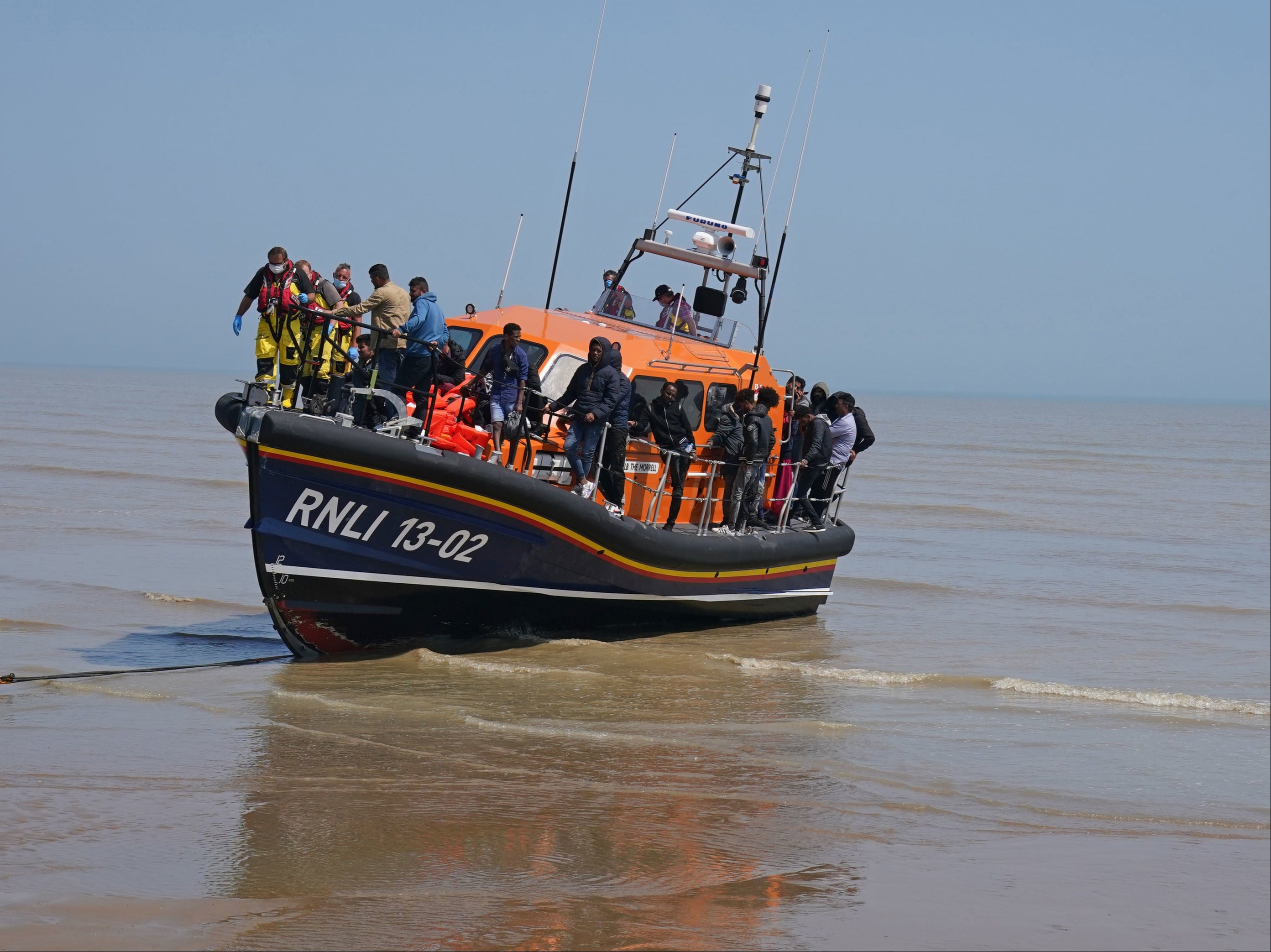The RNLI deserves our support and admiration
Editorial: It has come to something when the act of saving the life of a child is regarded as a ‘woke’ gesture or an example of ‘migration madness’

For almost 200 years the Royal National Lifeboat Institution (RNLI) has been revered for the work it does. It is a much-loved charity that commands widespread support. Yet now it has been dragged into another of Britain’s never-ending culture wars. The mob has arrived online and physically along the coast of Kent to throw beer cans and hurl abuse at RNLI volunteers and the migrants they have rescued from drowning. It has come to something when the act of saving the life of a child is regarded as a “woke” gesture or an example of “migration madness”.
Those attacking the RNLI for rescuing the lives of migrants drifting around in the English Channel ask many questions about why these brave volunteers are doing what they do. But the critics have yet to answer one central question themselves: what would you have the RNLI do instead?
The RNLI exists to save lives at sea, and that is what it does. It is not there to act as an alternative Border Force or as an auxiliary arm of HM coastguard or the royal navy. Apart from anything else it is an independent charity supported entirely by public donations, and makes no call on the taxpayer (and thus cannot be accused of misusing public funds).
It does support overstretched Border Force officials in the task of saving lives, but that is as far as its policy remit runs. It cannot and does not determine the migration status of someone in danger of drowning and cannot judge whether people are refugees. That is for others. Moreover, the RNLI cannot discriminate as to which lives to save. That would be illegal, under the UN international convention on the law of the sea, as well as entirely against its own long traditions. It would also be plain immoral.
The usual argument is that the RNLI, in common with Border Force and the coastguard, should “turn back” the people in “small boats”. Aside from anything else, there is no automatic right for any organisation to tow, escort or carry people from British waters to French or Belgian waters, or their ports, and no obligation, post-Brexit, for the authorities to receive them back. The old EU Dublin agreements no longer apply, and the British now pay the French to police their coast, with some success. The natural place for the RNLI to take a refugee, like anyone else, is to Britain. Once there the RNLI follows the law and hands these people to the police or Border Force.
Some also urge an even more brutal approach, copying the methods used by the Royal Australian Navy in forcing boats back to their origin. But the vast seas between Indonesia and Australia contain international waters, whereas the English Channel does not. The Australians also established offshore detention camps in places such as Papua New Guinea and Nauru, where refugees could be housed and processed, albeit in sometimes appalling conditions. Again, this is not even an option for the RNLI.
Nor can the RNLI ignore the plight of these stranded people because they are “illegal” migrants for one other simple reason, which is that they are not “illegal” until their claim for asylum or other legal reason for settlement has been adjudicated; all have a right to claim asylum under the 1951 European Convention on Human Rights (nothing to do with the European Union), and the only way the UK can fully evade its responsibilities under that piece of international law is to withdraw from it, joining Belarus on the moral outskirts of Europe.
And so the RNLI should – must – be allowed to pursue its purely humanitarian mission unimpeded by violence and intimidation by the mob and those politicians who should know better. The current immigration bill criminalises the RNLI and others giving humanitarian aid to those in dire need, and preserving the most precious human right of all: the right to life. It is not even as if crossing the Channel by boat is the most important or only route into the UK – overstaying a visa is easier and more commonplace.
It may well be that the asylum system is being abused by some, and that parasitic people traffickers are exploiting the desperate and the vulnerable. The presence of small, overcrowded, unseaworthy vessels in the Channel, one of the busiest shipping lanes in the world, is a danger to life. What is also clear is that there are more fundamental forces of geopolitics and economics at work, pushing the migrants towards a better life in Britain. Britain, in turn, also needs labour, skilled and unskilled. In the great scheme of things the 20,000 migrants that may arrive this way this year is a perfectly manageable figure and – shock, horror – some might actually have something to offer a prospective employer.
Somewhere, a realistic balance has to be found, though experience and the bitterness of the debate suggests it may not be. Either way, the RNLI should be kept out of the culture wars.



Join our commenting forum
Join thought-provoking conversations, follow other Independent readers and see their replies
Comments